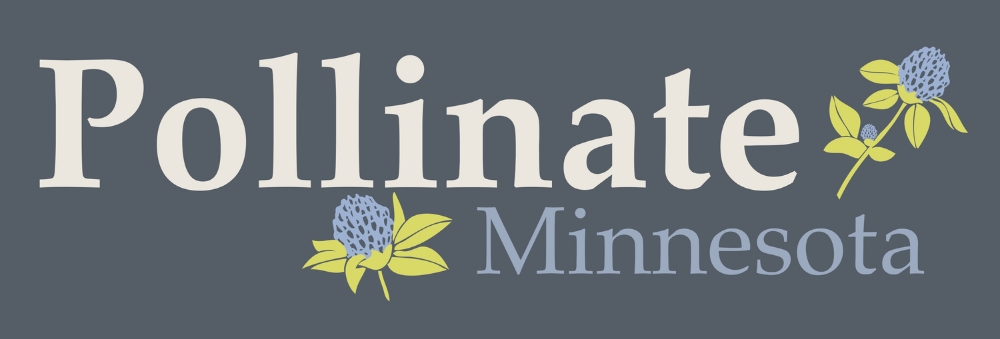In September 2022, the Minnesota Department of Agriculture asked for submissions from the public to help shaped their 2023 legislative agenda. Pollinate Minnesota’s submission follows.
Erin Rupp, Pollinate Minnesota, www.pollinatemn.org
*sent to the MDA on 9/15/2022 (https://www.mda.state.mn.us/2023-legislative-ideas)
Since your 2016 neonic review, our scientific understanding has deepened around the ecosystem, insect, bird, and mammal health harms of neonicotinoids, as it has with many other chemistries. As a public, we also understand that the EPA Office of Pesticide Programs (OPP) catalyzes these atrocities, continually, by ignoring and denying known science of harm to register new chemistries and keep existing ones in use.
To frame EPA OPP’s pesticide registration as a dysfunctional or broken system is false- it’s functioning as designed, just opposite of what they’re telling us as taxpayers. The goals of our current registration system- to register as many pesticides for their ‘clients’ ie the companies that manufacture these chemicals and profit from their sale, as they can- become pretty clear when you look at the deep and growing history of chemical horrors through LEGAL pesticide application, many of which are cited in the 2021 letter from over 30 organizations to the EPA: Major Reform is Needed in EPA OPP’s Pesticide Regulation.
The MDA has the federally granted authority to enforce the regulation of pesticides, which means these EPA failures are yours as well. You are in continual, inherent conflict as the agency with the state granted responsibility to protect Minnesotans- our health, livelihoods and our environment- from pesticide harm. With the known catastrophic failures at the EPA, now is the time for bold action from your agency.
Since 2016, numerous other states have taken steps toward pollinator and ecosystem protections, from making neonics a Restricted Use Pesticide (New Jersey, Maryland, Connecticut, Vermont and Massachutes) to banning non-agricultural uses as has passed the legislature in California. Here in MN, as you know, we were a national leader in state efforts to protect pollinators. Minnesotans have contributed significant taxpayer dollars over the past decade to pollinator habitat creation and research. We commend you all, as a department, for your past leadership.
We haven’t seen a return on that investment in terms of pollinator health. We have one of the best bee research labs in the world, and all metrics for pollinator health that the EQB (Environmental Quality Board) publishes in their annual Pollinator Report were the same as past years or worse. Honey bee losses continue to be unsustainable, in spite of months of additional beekeeper labor. 6 of our 23 bumble bee species are heading toward or on the endangered species list, including our federally endangered state bee, the rusty patched bumble bee.
We continue to see more research finding negative vertebrate and mammalian health impacts of neonic exposure. Thanks to DNR research, we also know that neonics are common in deer throughout the state, including the boundary waters.
So many pesticides harm Minnesotan’s health directly and “U.S. Pesticide Exposure is Up to 5 Times Greater for People of Color.” Further evidence linking the most widely used insecticide in our state and in the country, neonicotinoids, to the mammalian harm, after being told for the past 30 years, by the manufactures, the EPA and your agency, that they do no harm human health, is undeniably devastating and warrents immediate action.
Protect MN’s environment and our human health, the dual backbones of our agricultural economy, by supporting the following actions. We believe many of these steps are within your current authority.
Take action to remedy the EPA’s atrocities at the MDA, as defined in the Major Reform is Needed in EPA OPP’s Pesticide Regulation letter sent to the EPA this spring by over 30 NGO’s. Many of these are implementable at the state level.
Advocate for legislative changes necessary for reform. For those actions outside of state purview, advocate publicly for change at the federal level to address the concerns in this letter.
The following actions would mitigate neonicotinoid harms. Most have existing bill numbers.
Cancel neonicotinoid registrations in Minnesota.
Prohibit neonic seed treatment
Make neonics a Restricted Use Pesticide; prohibit their outdoor non-ag use
Support farmers in transitioning away from neonic use.
Work with the DNR to stop neonic use on public lands.
Work with MDH on human health monitoring for neonics including expanding food testing.
Air quality and precipitation monitoring for neonics.
Work with MPCA to mitigate neonic harm from past applications.
Address treated seed exposures from cradle to grave.
Create a treated seed program, regulate treated seeds as the pesticide applications they are, ban neonic seed treatments.
Support seed stewardship bills, address treated seed waste stream to prevent Minnesota farmers’ unwittingly culpability in the environmental devastation continually facing Mead NE or anywhere else.
Increase pesticide registration fees, create a pollinator protection account.
Allow municipalities to regulate pollinator harming pesticides in a manner that they choose.
Support regenerative, emerging, organic, and specialty crop farm economies. Continue to grow your support for farmers of color and emerging farmers. Expand your Agri Grant program.
Better enforcement of pesticide laws.
In cases where legal applications cause harm, my understanding is that the MDA reports this harm to the EPA. This system is another where the EPA is not functioning. How can the MDA, independently or in collaboration with other states, take new action to hold pesticide manufacturers accountable?
Work with relevant agencies to redefine agriculture pollution as a point source pollutant.
Define Integrated Pest Management as the Xerces Society does- to exclude prophylactic pesticide applications.
Now is the time for bold action. Thank you.

